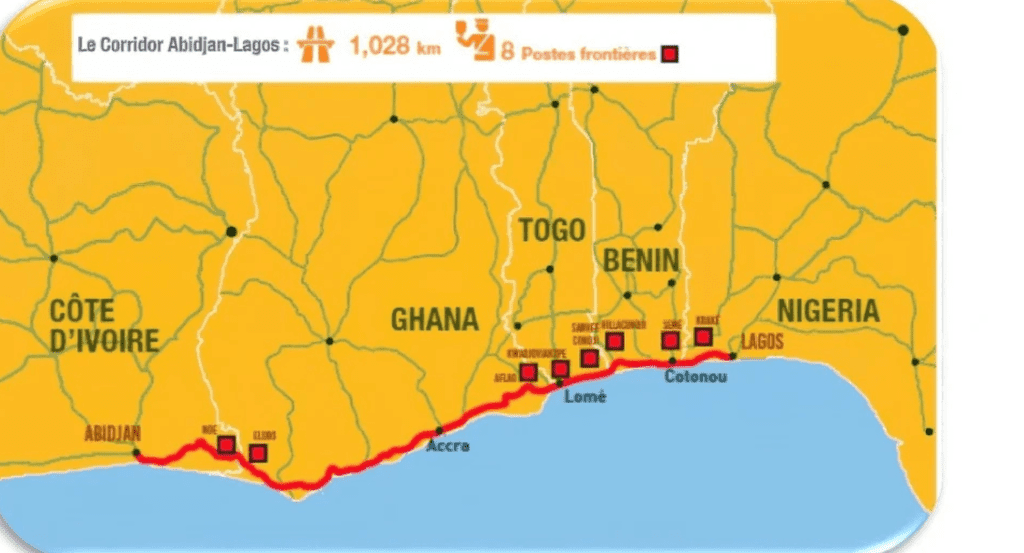The Abidjan-Lagos Corridor highway project is gaining momentum as stakeholders, including the African Development Bank (AfDB), commit to transforming the route into a vibrant economic and industrial hub. Spanning five West African countries—Côte d’Ivoire, Ghana, Togo, Benin, and Nigeria—the highway is set to revolutionize regional integration and trade by 2030.
The initiative, regarded as a cornerstone of the African Union’s Agenda 2063, aims to link major cities and ports across the region. It is expected to facilitate the seamless movement of goods and people, thereby boosting intra-regional trade and unlocking economic opportunities. According to the AfDB, the corridor will serve over 40 million people and stimulate industrial and agricultural activities along its route.
The highway, stretching approximately 1,028 kilometers, is envisioned to meet international standards, incorporating features like multiple lanes and intelligent transport systems. Officials from the Economic Community of West African States (ECOWAS) emphasize its potential to reduce transportation costs, improve supply chains, and enhance regional connectivity.
However, the project faces challenges, including funding gaps, land acquisition issues, and regulatory hurdles. Experts have also raised concerns about delays that could derail the timeline for completion. Despite these obstacles, partners are optimistic, with AfDB leading efforts to mobilize resources and ensure project sustainability.
The highway is a pivotal step toward implementing the African Continental Free Trade Area (AfCFTA), which aims to create a single market for goods and services across the continent. By improving infrastructure and easing cross-border trade, the project aligns with broader goals of fostering economic growth and reducing poverty.
In addition to its economic impact, the highway is expected to strengthen social ties and promote cultural exchanges among the five nations. Advocacy groups have called for inclusive policies to ensure that the benefits extend to local communities, particularly those living along the corridor.
As construction plans advance, the Abidjan-Lagos Corridor symbolizes a new era of development for West Africa. The project not only underscores the importance of regional cooperation but also highlights the transformative power of infrastructure in driving sustainable growth across the continent.





















